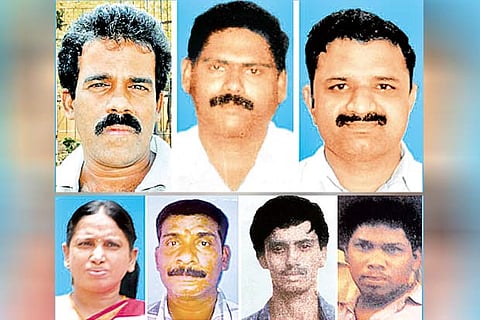

Chennai
The submission was made on a habeas corpus plea moved by Nalini Sriharan, one of the convicts in the case, stating that she has been kept under illegal detention since September 2018 despite the Tami Nadu Cabinet recommending her release.
On Tuesday, when Nalini’s plea came up for hearing before the division bench comprising Justices R Subbaiah and R Pongiappan, Additional Solicitor General G Rajagopal sought to suo motu implead the Centre as it has not been made a party in the case. He submitted from the Centre’s report handed to the Supreme Court in 2018 that the assassination of Rajiv Gandhi was a “most heinous and brutal crime”, one which had brought the Indian democratic process to a “grinding halt” as general and State elections had to be postponed.
The report also claimed that the trial court had given “cogent reasons” for imposing death penalty upon the accused and pointed out that even the Supreme Court had termed the assassination an “unparalleled act” in the annals of crimes committed in this country. The convicts are V Sriharan, T Suthendraraja, Jayakumar, Robert Payas (all Sri Lankans), A G Perarivalan, Ravichandran and Nalini. All the seven were convicted by a special TADA court for their role in the assassination of former prime minister Rajiv Gandhi on May 21, 1991 during an election rally at Sriperumbudur near here and sentenced to death but later it was commuted to life imprisonment.
“Releasing the four foreign nationals who had committed the gruesome murder of the former prime minister of this country, along with 15 others-most of whom were police officers-in connivance with three Indian nationals, will set a very dangerous precedent and lead to international ramifications by other such criminals in the future,” the report filed on behalf of the Centre said. Advocate M Radhakrishnan, appearing for Nalini, submitted that the report of the Centre submitted in 2018 was in connection with a plea moved by another convict Perarivalan for reopening the case and cancelling his conviction. He submitted that the present case was on a different footing based on the resolution passed by the State Cabinet to release all the seven convicts on September 9, 2018. This meant that Nalini had been in illegal detention since then, he argued.
Nalini, in her petition filed last year, has contended she was illegally detained in the Central Prison in Vellore from September 10, 2018 as the State Governor has not acted on the Cabinet decision of September 9, 2018 to release her under Article 161 of the Constitution. Citing a Supreme Court judgement, she claimed the Governor had no discretion but to act on the advice of the Council of Ministers under Article 161 as it was binding.
However, the bench suo motu impleaded the Union Home Secretary as a respondent and directed the official to file a counter affidavit by January 28 and adjourned the matter till then.
Visit news.dtnext.in to explore our interactive epaper!
Download the DT Next app for more exciting features!
Click here for iOS
Click here for Android